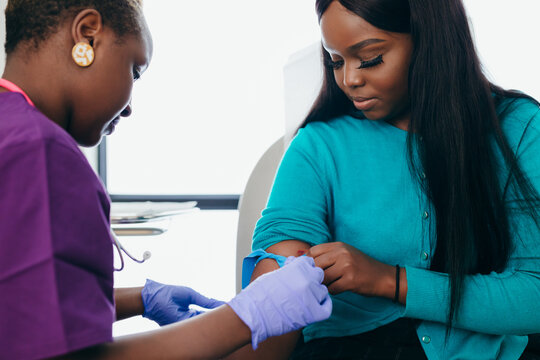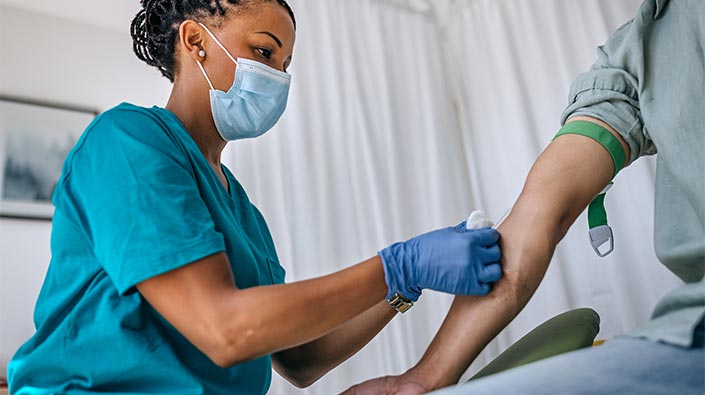- Duration and Structure: The Phlebotomy Technician program lasts 3 - 4 months, with 70 hours of classroom and
lab instruction and 80 hours of clinical experience, providing the practical skills
and knowledge needed for success.
- Hands-On Training: Includes 100 hours of clinical experience to practice blood collection in real healthcare
settings.
- Small Class Sizes: With a maximum of 15 students per class, you receive personalized instruction and
support.
- Comprehensive Curriculum: 50 hours of classroom instruction covering blood collection techniques, patient
interaction, and specimen handling.
- Industry Demand: Phlebotomists are in high demand in hospitals, labs, and medical offices.
- Certification Ready: Upon completion, students are prepared to sit for national certification exams.

Campbellsville University’s Phlebotomy Certification program is available at both
the Campbellsville campus and the Harrodsburg campus, providing flexibility for students.
Whether you prefer in-person instruction at our campuses or the convenience of a local
location, we ensure a consistent, high-quality learning experience. Each campus offers
the same curriculum, including classroom training and hands-on clinical hours, preparing
you for national certification and a successful career as a phlebotomist.
To be admitted into Campbellsville University’s Phlebotomy Certification program,
applicants must meet the following requirements:
- Applicants must be at least 18 years old.
- Possess a high school diploma or GED.
- Present a valid, non-expired government-issued photo ID.
- Consent to a background check and drug screening is required before participating
in clinical externships.
- Must not have been found guilty of, entered a guilty plea, or Alford plea to a felony
offense, or have completed a diversion program for a felony offense (KRS Chapter 335B).
- Must not have been subjected to discipline that would prevent certification at the
time of application.
- Must have a valid and current vehicle operator's license for the United States or
its territories.
- Be a citizen or permanent resident of the United States, or otherwise lawfully present
in the U.S., as evidenced by submission of appropriate documentation such as a Social
Security Card, Birth Certificate, Permanent Resident Card (Form I-551), or other legal
authorization to live and work in the U.S.
These requirements ensure that students are prepared to succeed in the program and
meet the standards for working in healthcare settings.

The demand for Phlebotomists continues to grow as healthcare facilities rely on skilled
professionals to collect and process blood samples for testing, diagnosis, and treatment.
According to the U.S. Bureau of Labor Statistics, employment for phlebotomists is
projected to increase due to the aging population, expanded access to healthcare services,
and the ongoing need for laboratory testing in hospitals, clinics, and diagnostic
centers.
Careers in Phlebotomy:
- Hospital Phlebotomist
- Clinical Laboratory Assistant
- Donor Phlebotomy Technician
- Mobile Phlebotomist
- Laboratory Collection Specialist
- Patient Care Technician
- Medical Laboratory Technician Assistant
 The Phlebotomy Technician program at Campbellsville University is accredited by the
National Center for Competency Testing (NCCT). This accreditation enables graduates
to sit for the National Certified Phlebotomy Technician (NCPT) exam, validating their
skills and qualifications in the field of phlebotomy. This certification enhances
career opportunities and helps graduates meet industry standards for phlebotomists.
The Phlebotomy Technician program at Campbellsville University is accredited by the
National Center for Competency Testing (NCCT). This accreditation enables graduates
to sit for the National Certified Phlebotomy Technician (NCPT) exam, validating their
skills and qualifications in the field of phlebotomy. This certification enhances
career opportunities and helps graduates meet industry standards for phlebotomists.



